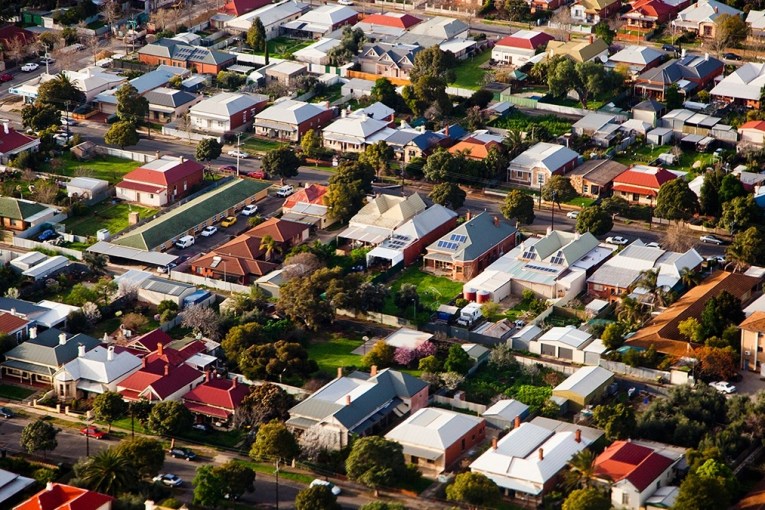Tips on how to value your own property


Seeing the inside of a house is important, so go to house inspections in your area.
We all have a figure in our minds of what our property is worth on the open market.
The trouble is, most of us see our home in a glowing light and tend to over-estimate this value, setting us up for disappointment when it comes time to sell.
Some unscrupulous agents don’t help either by indulging sellers’ emotional attachment to their home and dreams of a runaway auction result by assuring them their price expectations are realistic.
• Babycinos, boutiques impact house prices
• Foolproof guide to finding a good real estate agent
• Discount properties with dark secrets
If you are planning to list your home, it’s important to have a solid price expectation that is based on your own research, not the vague promises of an agent.
Understand real value

Banks will tend to underestimate the value of your home.
Founder of Metropole Properties Michael Yardney points out there are three types of values when it comes to property — the market value, which is what someone will pay after a solid marketing campaign; the bank’s own valuation; and the value ascribed by a sworn valuer.
“The problem with the bank’s valuation is they tend to be very conservative with the figure,” Mr Yardney says.
“A sworn valuer can give you a figure, but that can be up to 10 per cent out, too, particularly in auction areas like Sydney and Melbourne. And valuers cost money.
“The only value that you really need to worry about is the market value which is what a willing purchaser will give a willing seller.”
CEO of WBP Property Group and judge on TV’s The Block, Greville Pabst, defines market value as “a very clear and definite principle”.
“A seller must not be anxious, given a reasonable selling timeframe and a good marketing campaign that resonates with the property’s targeted buyer,” he says.
Data trawl
So where to start?
Many sellers turn to figures listed on The Real Estate Institute of Victoria and RP Data website, which offer up-to-date information on state-based median house prices.
“However, median house price should only be used as a guide,” Mr Pabst says.
“When looking at a particular location with fewer than thirty houses sold per month the median can be statistically skewed and not a realistic measure.”
Mr Yardney notes that many sellers check out online valuation tools, such as onthehouse.com.au, but he, too, argues these sites are far from fool-proof.
“They will look at other sales in your area, but they won’t be able to assess if, say, the floorboards are in good condition,” he says.
Check yourself
One of the best ways to gauge an idea of what your home will sell for is to look around you.

Seeing the inside of a house is important, so go to house inspections in your area.
“Attend auctions and open for inspections for a three-month period,” Mr Pabst says.
“This should provide you with a good understanding of values within a geographic.”
Mr Pabst recommends looking at factors such as land size, off-street parking, building size, car accommodation, number of bedrooms and bathrooms, condition of renovation, condition of building, size of building, and location of the property when assessing its relative worth.
Mr Yardney stresses that people need to research what properties sold for — not their initial listing price.
“And then you have to be honest about how that home which sold for that price is different from yours, whether it is on the better end of the street, whether it has an extra bedroom,” Mr Yardney says.
“If you are not honest about the strengths and weaknesses of your property, the market will be honest for you.”
Seek professional help
Once you have done your homework, it doesn’t mean you should discount other people’s opinions.
Mr Yardney says there is also nothing wrong with asking a reputable agent for a quote range, as long as you ask them to back it up.
“You can use a selling agent as a guide, but once they give you a quote range, ask them how they reached that figure,” Mr Yardney says.
“They should be able to back it up with comparable sales in the area.”
Follow Johanna Leggatt on Twitter @johannaleggatt









